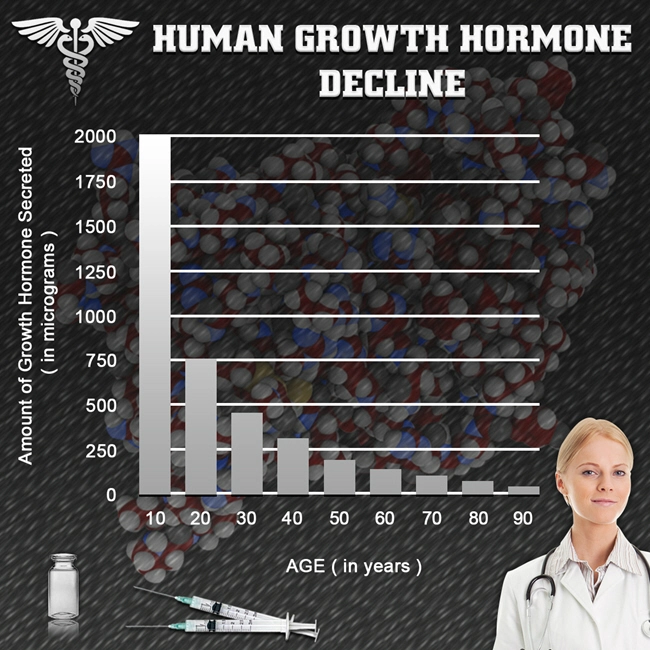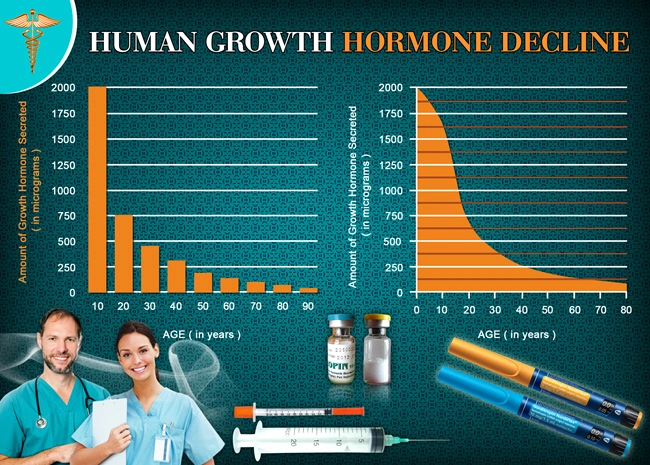
Introduction to Genotropin and Cystic Fibrosis
Genotropin, a recombinant human growth hormone, has emerged as a pivotal therapeutic agent in the management of growth hormone deficiency (GHD) across various patient populations. Its application in patients with cystic fibrosis (CF), a genetic disorder that primarily affects the respiratory and digestive systems, has garnered significant attention. CF patients often experience growth retardation due to chronic illness and malnutrition, making the role of Genotropin particularly crucial in this demographic.
Understanding Growth Hormone Deficiency in Cystic Fibrosis
Cystic fibrosis is characterized by the buildup of thick mucus in the lungs and issues with the pancreas, leading to malabsorption of nutrients and subsequent growth failure. Growth hormone deficiency, whether primary or secondary to the chronic illness, exacerbates these growth issues. The administration of Genotropin aims to counteract these effects by stimulating growth and improving body composition.
Mechanism of Action of Genotropin
Genotropin functions by mimicking the action of the naturally occurring growth hormone. It stimulates the liver and other tissues to secrete insulin-like growth factor 1 (IGF-1), which plays a critical role in childhood growth and continues to have anabolic effects in adults. In CF patients, Genotropin not only promotes linear growth but also enhances muscle mass and reduces fat mass, contributing to overall health improvement.
Clinical Evidence Supporting Genotropin Use in CF
Several clinical studies have demonstrated the efficacy of Genotropin in CF patients with GHD. A notable study published in the Journal of Clinical Endocrinology and Metabolism showed that CF patients treated with Genotropin experienced significant improvements in height velocity and lean body mass compared to untreated controls. These findings underscore the potential of Genotropin to improve quality of life and possibly longevity in CF patients.
Administration and Dosage Considerations
Genotropin is typically administered via subcutaneous injection, with dosage tailored to the individual needs of the patient. For CF patients, the dosage must be carefully monitored due to their unique metabolic challenges. Regular assessments of growth parameters and IGF-1 levels are essential to adjust the dosage and ensure optimal therapeutic outcomes.
Potential Side Effects and Safety Profile
While Genotropin is generally well-tolerated, potential side effects include injection site reactions, headaches, and joint pain. More serious, albeit rare, side effects can include increased intracranial pressure and glucose intolerance. It is crucial for healthcare providers to monitor CF patients closely for these adverse effects, particularly given their predisposition to metabolic disturbances.
The Role of Genotropin in Multidisciplinary Care
The management of GHD in CF patients requires a multidisciplinary approach, integrating endocrinologists, pulmonologists, and dietitians. Genotropin serves as a key component of this comprehensive care strategy, aimed at optimizing growth and health outcomes. Collaboration among healthcare professionals ensures that the benefits of Genotropin are maximized while minimizing potential risks.
Future Directions and Research
Ongoing research continues to explore the long-term effects of Genotropin in CF patients, including its impact on pulmonary function and overall survival. Future studies may also investigate the potential synergistic effects of Genotropin with other therapeutic modalities, such as nutritional supplements and novel CFTR modulators, to further enhance patient outcomes.
Conclusion
Genotropin represents a significant advancement in the treatment of growth hormone deficiency among patients with cystic fibrosis. By promoting growth and improving body composition, Genotropin offers hope for enhanced quality of life and possibly better long-term health outcomes for this vulnerable population. As research progresses, the role of Genotropin in CF care is likely to become even more integral, highlighting the importance of continued investigation and clinical application.
Contact Us Today For A Free Consultation
Dear Patient,
Once you have completing the above contact form, for security purposes and confirmation, please confirm your information by calling us.
Please call now: 1-800-380-5339.
Welcoming You To Our Clinic, Professor Tom Henderson.

- Unveiling the Potential of Genotropin: A Comprehensive Review of Clinical Trials and Outcomes [Last Updated On: February 21st, 2025] [Originally Added On: February 21st, 2025]
- Exploring the Impact of Genotropin on Metabolic Health in American Adult Males [Last Updated On: February 26th, 2025] [Originally Added On: February 26th, 2025]
- Genotropin Improves Lipid Profiles in American Males with Growth Hormone Deficiency [Last Updated On: March 12th, 2025] [Originally Added On: March 12th, 2025]
- Unveiling the Potential of Genotropin in Managing Idiopathic Short Stature in American Males [Last Updated On: March 15th, 2025] [Originally Added On: March 15th, 2025]
- Exploring the Efficacy of Genotropin in Treating Growth Hormone Deficiency Among American Males with Sleep Disorders [Last Updated On: March 16th, 2025] [Originally Added On: March 16th, 2025]
- Exploring the Effects of Genotropin on Lung Function in Growth Hormone Deficient American Males [Last Updated On: March 16th, 2025] [Originally Added On: March 16th, 2025]
- Exploring the Role of Genotropin in Treating Growth Hormone Deficiency and Osteoporosis in American Males [Last Updated On: March 16th, 2025] [Originally Added On: March 16th, 2025]
- Exploring the Impact of Genotropin on Exercise Performance in Growth Hormone Deficient American Males [Last Updated On: March 16th, 2025] [Originally Added On: March 16th, 2025]
- Unlocking the Potential of Genotropin Therapy: Overcoming Psychological Barriers in American Males [Last Updated On: March 16th, 2025] [Originally Added On: March 16th, 2025]
- Exploring the Impact of Genotropin on Bladder Function in American Males with Growth Hormone Deficiency [Last Updated On: March 16th, 2025] [Originally Added On: March 16th, 2025]
- Genotropin Therapy: Transitioning American Males from Pediatric to Adult Care [Last Updated On: March 16th, 2025] [Originally Added On: March 16th, 2025]
- Genotropin: Enhancing Growth and Quality of Life in SGA Children [Last Updated On: March 17th, 2025] [Originally Added On: March 17th, 2025]
- Optimizing Genotropin Therapy Compliance for American Males: Strategies and Support [Last Updated On: March 18th, 2025] [Originally Added On: March 18th, 2025]
- Genotropin: A Breakthrough in Treating Short Bowel Syndrome in American Males [Last Updated On: March 18th, 2025] [Originally Added On: March 18th, 2025]
- Genotropin: Pharmacokinetics, Pharmacodynamics, and Clinical Use in American Males with GHD [Last Updated On: March 18th, 2025] [Originally Added On: March 18th, 2025]
- Genotropin's Impact on Cognitive Function in American Males with Growth Hormone Deficiency [Last Updated On: March 19th, 2025] [Originally Added On: March 19th, 2025]
- Genotropin: Enhancing Vitality in Elderly American Males with Growth Hormone Deficiency [Last Updated On: March 19th, 2025] [Originally Added On: March 19th, 2025]
- Genotropin: Enhancing Growth in American Males with Various Disorders [Last Updated On: March 20th, 2025] [Originally Added On: March 20th, 2025]
- Genotropin's Impact on Cardiovascular Health in American Men with Growth Hormone Deficiency [Last Updated On: March 20th, 2025] [Originally Added On: March 20th, 2025]
- Genotropin: Enhancing Life Quality in American Males with Adult-Onset Growth Hormone Deficiency [Last Updated On: March 21st, 2025] [Originally Added On: March 21st, 2025]
- Genotropin Therapy: Debunking Myths and Clarifying Benefits for American Males [Last Updated On: March 21st, 2025] [Originally Added On: March 21st, 2025]
- Managing Genotropin Side Effects in American Males: Strategies and Tips [Last Updated On: March 21st, 2025] [Originally Added On: March 21st, 2025]
- Genotropin Boosts Immune Function in Growth Hormone Deficient American Males [Last Updated On: March 22nd, 2025] [Originally Added On: March 22nd, 2025]
- Genotropin: Effective GH Therapy for Post-Radiation Growth Hormone Deficiency in Males [Last Updated On: March 22nd, 2025] [Originally Added On: March 22nd, 2025]
- Genotropin: Enhancing Life Quality in American Males with Hypopituitarism [Last Updated On: March 22nd, 2025] [Originally Added On: March 22nd, 2025]
- Genotropin: A Targeted Treatment for Growth Hormone Deficiency in American Males [Last Updated On: March 22nd, 2025] [Originally Added On: March 22nd, 2025]
- Genotropin: Enhancing Sleep Quality in American Men with Growth Hormone Deficiency [Last Updated On: March 22nd, 2025] [Originally Added On: March 22nd, 2025]
- Genotropin Boosts Exercise Capacity in American Men with Growth Hormone Deficiency [Last Updated On: March 23rd, 2025] [Originally Added On: March 23rd, 2025]
- Genotropin's Cost-Effectiveness for American Males with Growth Hormone Deficiency [Last Updated On: March 23rd, 2025] [Originally Added On: March 23rd, 2025]
- Genotropin Therapy: Enhancing Growth and Life Quality in American Males with GHD [Last Updated On: March 23rd, 2025] [Originally Added On: March 23rd, 2025]
- Genotropin: Enhancing Growth and Quality of Life in Childhood Cancer Survivors with GHD [Last Updated On: March 23rd, 2025] [Originally Added On: March 23rd, 2025]
- Genotropin's Role in Managing Growth Hormone Deficiency in HIV-Positive American Males [Last Updated On: March 23rd, 2025] [Originally Added On: March 23rd, 2025]
- Genotropin: Enhancing Growth in American Males with Craniopharyngioma-Induced GHD [Last Updated On: March 23rd, 2025] [Originally Added On: March 23rd, 2025]
- Genotropin Therapy: Enhancing Growth in American Boys with Hormone Deficiency [Last Updated On: March 23rd, 2025] [Originally Added On: March 23rd, 2025]
- Genotropin: Enhancing Recovery from TBI-Induced Growth Hormone Deficiency in American Males [Last Updated On: March 24th, 2025] [Originally Added On: March 24th, 2025]
- Genotropin: Enhancing Growth in American Males with Sickle Cell Disease and GHD [Last Updated On: March 24th, 2025] [Originally Added On: March 24th, 2025]
- Genotropin's Impact on Vision in American Men with Growth Hormone Deficiency: A Review [Last Updated On: March 25th, 2025] [Originally Added On: March 25th, 2025]
- Genotropin's Impact on Quality of Life in American Males with Turner Syndrome [Last Updated On: March 25th, 2025] [Originally Added On: March 25th, 2025]
- Genotropin Enhances Skin Health in American Men with Growth Hormone Deficiency [Last Updated On: March 25th, 2025] [Originally Added On: March 25th, 2025]
- Strategies to Boost Genotropin Adherence in American Adolescent Males [Last Updated On: March 25th, 2025] [Originally Added On: March 25th, 2025]
- Genotropin's Impact on Reproductive Health in American Males with GHD [Last Updated On: March 25th, 2025] [Originally Added On: March 25th, 2025]
- Genotropin's Efficacy and Safety in Diabetic American Males with Growth Hormone Deficiency [Last Updated On: March 25th, 2025] [Originally Added On: March 25th, 2025]
- Genotropin's Impact on Dental Health in American Males with Growth Hormone Deficiency [Last Updated On: March 25th, 2025] [Originally Added On: March 25th, 2025]
- Genotropin Use in American Males with Growth Hormone Deficiency and Asthma: A Tailored Approach [Last Updated On: March 26th, 2025] [Originally Added On: March 26th, 2025]
- Genotropin's Role in Managing Growth Hormone Deficiency in American Males with Down Syndrome [Last Updated On: March 26th, 2025] [Originally Added On: March 26th, 2025]
- Genotropin: Enhancing Life for Adults with Growth Hormone Deficiency [Last Updated On: March 26th, 2025] [Originally Added On: March 26th, 2025]
- Genotropin's Impact on Emotional Well-Being in American Boys with Growth Hormone Deficiency [Last Updated On: March 26th, 2025] [Originally Added On: March 26th, 2025]
- Genotropin's Role in Treating Growth Hormone Deficiency and Rheumatoid Arthritis in American Males [Last Updated On: March 26th, 2025] [Originally Added On: March 26th, 2025]
- Genotropin: Enhancing Growth and Cognitive Function in American Males with GHD and ADHD [Last Updated On: March 26th, 2025] [Originally Added On: March 26th, 2025]
- Genotropin: Enhancing Quality of Life in Males with GHD and Pituitary Tumors [Last Updated On: March 26th, 2025] [Originally Added On: March 26th, 2025]
- Genotropin Therapy Enhances Growth in American Males with Epilepsy and GHD [Last Updated On: March 27th, 2025] [Originally Added On: March 27th, 2025]
- Genotropin's Impact on Kidney Function in American Males with Growth Hormone Deficiency [Last Updated On: March 27th, 2025] [Originally Added On: March 27th, 2025]
- Managing Growth Hormone Deficiency Transition with Genotropin: Strategies for Adult Care [Last Updated On: March 27th, 2025] [Originally Added On: March 27th, 2025]
- Genotropin Therapy: Personalized Growth Hormone Treatment for American Males [Last Updated On: March 27th, 2025] [Originally Added On: March 27th, 2025]
- Genotropin's Impact on Hearing in American Boys with Growth Hormone Deficiency [Last Updated On: March 28th, 2025] [Originally Added On: March 28th, 2025]
- Optimizing Genotropin Therapy with Tailored Nutrition for American Males with GHD [Last Updated On: March 28th, 2025] [Originally Added On: March 28th, 2025]
- Genotropin's Role in Treating GHD in American Males with ASD: Efficacy and Safety [Last Updated On: March 29th, 2025] [Originally Added On: March 29th, 2025]
- Genotropin: Enhancing Growth and Well-being in GHD with Thyroid Disorders [Last Updated On: March 30th, 2025] [Originally Added On: March 30th, 2025]
- Genotropin Enhances Hair Growth in American Men with Growth Hormone Deficiency [Last Updated On: March 30th, 2025] [Originally Added On: March 30th, 2025]
- Overcoming Psychological Barriers to Genotropin Therapy in American Males [Last Updated On: March 30th, 2025] [Originally Added On: March 30th, 2025]
- Genotropin Therapy Essentials for American Males with Growth Hormone Deficiency [Last Updated On: April 1st, 2025] [Originally Added On: April 1st, 2025]
- Genotropin: A Promising Treatment for GHD and Obesity in American Males [Last Updated On: April 3rd, 2025] [Originally Added On: April 3rd, 2025]
- Genotropin's Role in Treating GHD and CFS in American Males: A Comprehensive Overview [Last Updated On: April 4th, 2025] [Originally Added On: April 4th, 2025]
- Genotropin Enhances Lung Function in American Males with Growth Hormone Deficiency [Last Updated On: April 5th, 2025] [Originally Added On: April 5th, 2025]
- Genotropin's Impact on Liver Function in American Men with Growth Hormone Deficiency [Last Updated On: April 7th, 2025] [Originally Added On: April 7th, 2025]
- Genotropin's Efficacy in Treating Fibromyalgia and GHD in American Males [Last Updated On: April 8th, 2025] [Originally Added On: April 8th, 2025]
- Genotropin's Role in Managing Osteoporosis in American Males with Growth Hormone Deficiency [Last Updated On: April 9th, 2025] [Originally Added On: April 9th, 2025]
- Genotropin Therapy: Enhancing Communication for American Males' Treatment Success [Last Updated On: April 9th, 2025] [Originally Added On: April 9th, 2025]
- Genotropin: A Dual Treatment for Growth Hormone Deficiency and Anemia in American Males [Last Updated On: April 9th, 2025] [Originally Added On: April 9th, 2025]
- Genotropin's Role in Managing Growth Hormone Deficiency in American Males with MS [Last Updated On: April 10th, 2025] [Originally Added On: April 10th, 2025]
- Genotropin Therapy for GHD in Males: Ethical Considerations and Autonomy [Last Updated On: April 11th, 2025] [Originally Added On: April 11th, 2025]
- Genotropin: Managing Growth Hormone Deficiency in Hypertensive American Males [Last Updated On: April 12th, 2025] [Originally Added On: April 12th, 2025]
- Genotropin Enhances Joint Health in American Men with Growth Hormone Deficiency [Last Updated On: April 13th, 2025] [Originally Added On: April 13th, 2025]
- Overcoming Cultural Barriers to Genotropin Therapy in American Males [Last Updated On: April 15th, 2025] [Originally Added On: April 15th, 2025]
- Genotropin's Impact on Digestive Health in American Males with GHD [Last Updated On: April 15th, 2025] [Originally Added On: April 15th, 2025]
- Genotropin: Treating Growth Hormone Deficiency and Sleep Disorders in American Males [Last Updated On: April 15th, 2025] [Originally Added On: April 15th, 2025]
- Genotropin's Impact on GHD and Depression in American Males: Benefits and Considerations [Last Updated On: April 16th, 2025] [Originally Added On: April 16th, 2025]
- Genotropin: Effective GHD Treatment for American Males with Allergies [Last Updated On: April 17th, 2025] [Originally Added On: April 17th, 2025]
- Genotropin's Dual Efficacy in Treating GHD and Anxiety in American Males [Last Updated On: April 17th, 2025] [Originally Added On: April 17th, 2025]
- Genotropin's Impact on Reproductive Health in American Males with Growth Hormone Deficiency [Last Updated On: April 17th, 2025] [Originally Added On: April 17th, 2025]









